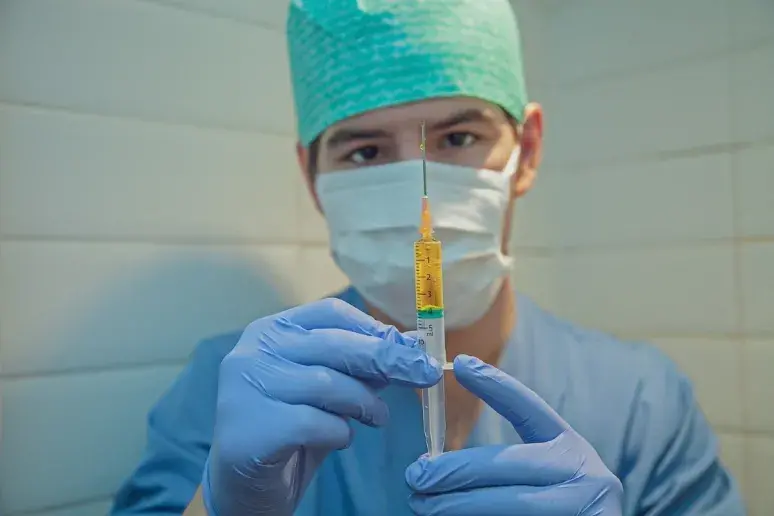
COVID-19 antibody treatment to protect the elderly to be tested next month
A new antibody treatment to protect the old and vulnerable from coronavirus is to be trialled in the UK next month. Drugs manufacturer AstraZeneca will test its three-minute infusion of the infection-fighting immune cells on 30 individuals in August.
If the initial testing is a success, the therapy will be fast-tracked into trials on a much larger scale, with thousands of people injected with the antibodies. This would coincide with the autumn and winter months when the cold weather is expected to bring on another spike in infections.
Government scientists have described the potential treatment as “very exciting” and it represents hope for those with immune systems so weak that a conventional vaccine wouldn’t give them full protection. Recreating disease-fighting substances in the lab instead of the body would help to provide these individuals with better defences.
While vaccines prompt the body to produce antibodies in young people, the elderly tend not to respond as well and the antibodies they produce aren’t as potent. This makes it harder to fight off infections, leaving them at greater risk of contracting COVID-19.
AstraZeneca is putting a lot of resources into the fight against coronavirus and is working on a separate project with Oxford University to develop a vaccine. The antibody treatment could be used for those of the population with shielding status to stop them from getting the virus for six months.
Sir Mene Pangalos, head of pharmaceutical discovery research at AstraZeneca, told The Times: “There's a population who are elderly that [may not] get a particularly good immune response to the [conventional] vaccine.
“In those instances you might want to prophylactically treat those patients with an antibody to give them additional protection. We're going to do this as fast as we can. Obviously we've got to show that you're safe but antibodies are well known entities - it should be safe.”
The antibody treatment would likely cost around twice as much as the standard vaccine, meaning it would be reserved for those with the weakest immune systems. It is based on monoclonal antibodies (mAbs), which are engineered in a lab to mimic antibodies naturally produced by patients who have recovered from COVID-19.
This technique, using mAbs, has already been deployed to tackle the likes of Ebola, tetanus and diphtheria. Researchers from Vanderbilt University in the US narrowed down a list of more than 1,500 mAbs to identify which ones would be the most effective at stopping coronavirus.
As a result, the two they identified will be combined and given as a single injection to bind to the coronavirus' spike protein. Without intervention, the virus uses this to latch onto human cells, giving the individual COVID-19.
Professor Peter Openshaw, an immunologist at Imperial College London, told The Telegraph: “I think it's potentially a very exciting form of therapy and the field has advanced quite remarkably over recent years in terms of the ability to produce antibodies in factories or in labs in bulk, that would be necessary for such a treatment to work. We do have to wait for some really good studies to demonstrate this.”
Find your nearest Barchester care home
With over 200 care homes in the UK, there's always a Barchester care home near you.